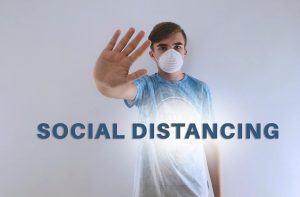
Updated on June 3, 2025
24 Hour Towing Service: Reliable Roadside Assistance Anytime
Car trouble can strike at any time. When you’re stranded on the side of the road, a 24-hour towing service can be a lifesaver. These services are ready to help day or night, rain or shine.
A 24-hour towing service can tow your vehicle to a safe location or repair shop, no matter when you need help. You don’t have to wait until morning if your car breaks down at 2 AM. This peace of mind is priceless for many drivers.
Towing companies offer more than just tows. They can help with flat tires, jump-starts, and fuel delivery. Some even provide locksmith services if you’re locked out of your car. Knowing a reliable 24 hour towing service can make dealing with car problems much less stressful. In addition you should be aware that there are different types of towing services available depending on your needs.
Understanding 24 Hour Towing Services
24 hour towing services are always ready to help when your car breaks down. These services operate around the clock, every day of the year. They come to your rescue when you’re stranded on the road.
Tow trucks can move your vehicle to a safe location. They take it to a repair shop or your home. The tow truck drivers are trained to handle different types of vehicles.
Here are some common reasons people need towing:
- Engine failure
- Flat tires
- Accidents
- Running out of fuel
- Dead battery
When you call for a tow, give clear details about your location. Describe your car and the problem you’re having. This helps the tow company send the right equipment.
Most towing services offer more than just towing. They can:
- Jump-start your battery
- Change a flat tire
- Bring you fuel
- Unlock your car if you’re locked out
Towing costs vary based on distance and type of service. It’s a good idea to ask about fees when you call. Some car insurance plans cover towing, so check your policy.
Remember to stay safe while waiting for the tow truck. Turn on your hazard lights and stay in your car if possible. If you must exit, do so on the side away from traffic.
Benefits of 24/7 Towing Availability
Round-the-clock towing gives you help when you need it most. It keeps you safe and gets you back on the road fast, no matter when trouble strikes.
Emergency Assistance
24/7 towing comes to your rescue any time, day or night. Your car could break down at 3 AM on a lonely road. With all-hours service, help is just a phone call away.
Tow trucks can reach you quickly, even in the middle of the night. This fast response keeps you from being stranded in unsafe spots.
Some common emergencies that 24/7 towing handles:
- Engine failures
- Flat tires
- Dead batteries
- Accidents
- Running out of gas
No matter the issue, you can count on help arriving soon.
Roadside Support
Beyond just towing, many 24/7 services offer roadside help. This can get you moving again without a full tow.
Common roadside support includes:
- Jump-starting dead batteries
- Changing flat tires
- Bringing fuel if you run out
- Unlocking cars when keys are locked inside
These quick fixes can save you time and money. You might avoid a tow and get back on your way faster.
Roadside support also works for minor issues that pop up during trips. You don’t have to cancel plans or miss work due to car trouble.
Peace of Mind
Knowing help is always available brings great comfort. You can drive with less stress, knowing support is just a call away if needed.
This peace of mind is extra valuable for:
- Night driving
- Long road trips
- Traveling in unfamiliar areas
- Driving older or less reliable vehicles
24/7 towing acts like a safety net for your journeys. You can explore freely, take on new routes, and travel at odd hours with less worry.
It’s also a relief for your loved ones. They’ll feel better knowing you have backup if car issues arise.
Factors to Consider When Choosing a Towing Service
When picking a tow truck company, think about how fast they can reach you, where they operate, and what they charge. These things will help you find the best service for your needs.
Response Time
Quick response is key when you’re stuck on the road. Look for towing services that offer 24/7 availability. Ask about their average arrival times. Some companies use GPS tracking to send the nearest truck to you.
Check reviews to see if other customers got help fast. A good towing service should aim to reach you within 30 to 60 minutes. In busy cities, it might take longer. Rural areas may also have longer wait times.
Remember, faster isn’t always better. A reliable service that takes a bit longer is often better than a rushed job.
Service Area Coverage
Find out where the towing company operates. Some only work in certain cities or regions. Others cover whole states or even multiple states.
A wide service area is great if you travel a lot. But local companies might know your area better. They could have faster response times too.
Ask if they charge extra for long-distance tows. Some companies partner with others to cover more ground. This can be helpful for unexpected breakdowns far from home.
Pricing Structure
Towing costs can vary a lot. Ask for a clear breakdown of fees before you agree to service. Some companies charge a base fee plus a per-mile rate. Others have flat rates for certain distances.
Watch out for hidden costs like hook-up fees or after-hours charges. Some services offer memberships with discounts. This can save you money if you need tows often.
Get quotes from a few companies to compare prices. But don’t pick based on price alone. Cheap service might mean old trucks or untrained drivers.
Different Types of Towing Vehicles
Towing vehicles come in various forms to handle different situations and vehicle types. Each has unique features for specific towing needs.
Flatbed Tow Trucks
Flatbed tow trucks have a large, flat surface that tilts and lowers to the ground. You can drive or winch vehicles onto the flatbed.
These trucks work well for:
- Damaged cars that can’t roll
- Low-clearance vehicles
- Long-distance towing
Flatbeds keep all wheels off the road, reducing wear on towed vehicles. They’re versatile and can handle many vehicle sizes and types.
Integrated Tow Trucks
Integrated tow trucks have a boom and wheel lift built into the truck body. This design makes them more compact than other tow trucks.
Key features:
- Adjustable boom for different vehicle weights
- Wheel lift to grab and lift drive wheels
- Suitable for light to medium-duty towing
You’ll often see these trucks used for:
- Repossessions
- Illegal parking removals
- Quick roadside assistance
Their smaller size lets them maneuver in tight spaces like parking garages.
Hook and Chain Tow Trucks
Hook and chain trucks use a heavy chain and hook system to lift vehicles. They’re less common now due to potential vehicle damage.
These trucks are still used for:
- Junk car removal
- Accident recovery
- Towing very heavy vehicles
The chain wraps around the vehicle’s axle or frame. The truck then lifts one end off the ground for towing.
Hook and chain trucks are not ideal for most modern cars. They can scratch paint or damage bumpers and body panels.
Legal and Safety Considerations in Towing
Towing involves important rules and safety steps. You need to know these to avoid fines and stay safe on the road.
Towing Regulations
You must follow local and state laws when towing. Check your vehicle’s tow rating before hooking up a trailer. Don’t go over this weight limit.
Make sure your trailer lights work. Use safety chains to connect the trailer to your vehicle. These prevent the trailer from coming loose.
Get the right license if you’re towing a large trailer. Some states require a special license for heavy loads.
Keep your registration and insurance up to date. This includes coverage for the trailer you’re towing.
Safety Procedures
Always check your equipment before hitting the road. Look at tires, hitches, and lights. Make sure everything is secure.
Drive slower when towing. Leave extra space between you and other cars. It takes longer to stop with a trailer.
Be careful when backing up. Use a spotter if possible. Practice in an empty lot to get better at it.
Watch out for strong winds. They can make your trailer sway. Slow down if this happens.
Pack your trailer carefully. Put heavy items low and towards the front. This helps keep the trailer stable.
Take breaks on long trips. Check your vehicle and trailer during stops. Look for any loose parts or tire issues.
Updated on June 2, 2025
Family Law Attorney San Diego: Expert Legal Services for Your Family Matters
Understanding Family Law in San Diego
If you are dealing with a family-related legal issue in San Diego, it is essential to understand the basics of family law in California. Family law covers a broad range of topics, including divorce, child custody, adoption, spousal support, paternity cases, prenuptial agreements, postnuptial agreements, and domestic violence.
Divorce
Divorce is the legal process of ending a marriage. In California, you can file for divorce if you meet the residency requirements. You or your spouse must have lived in California for at least six months before filing for divorce. The process involves filing a petition, serving the other party, and attending court hearings.
Child Custody
Child custody refers to the legal and physical custody of a child. In California, the court considers the best interests of the child when making custody decisions. The court may award joint custody, sole custody, or a combination of both. The court may also consider the child’s preference if the child is mature enough to make a decision.
Spousal Support
Spousal support, also known as alimony, is the financial support provided by one spouse to the other after a divorce. In California, the court considers several factors when determining spousal support, including the length of the marriage, the standard of living during the marriage, and the earning capacity of each spouse.
Domestic Violence
Domestic violence is a serious issue that affects many families. In California, domestic violence includes physical, emotional, and sexual abuse. If you are a victim of domestic violence, you can seek a restraining order to protect yourself and your children.
Conclusion
Understanding family law in San Diego is crucial if you are dealing with a family-related legal issue. Whether you are going through a divorce, fighting for child custody, seeking spousal support, or dealing with domestic violence, a skilled family law attorney can help you navigate the legal system and protect your rights.
Services Provided by Family Law Attorneys
Family law attorneys in San Diego offer a range of legal services to help you navigate through the complexities of family law. Here are some of the services that family law attorneys provide:
Divorce and Legal Separation
Divorce and legal separation are complicated legal processes that require the assistance of a family law attorney. A family law attorney can help you file for divorce or legal separation, negotiate the terms of the separation agreement, and represent you in court if necessary. They can also help you with issues related to child custody, child support, spousal support, and property division.
Child Custody and Visitation
Child custody and visitation are some of the most contentious issues in family law. A family law attorney can help you understand your legal rights and obligations as a parent, negotiate a parenting plan with your ex-spouse, and represent you in court if necessary. They can also help you modify an existing custody order if your circumstances have changed.
Child Support
Child support is a financial obligation that one parent must pay to the other parent to support their child. A family law attorney can help you calculate child support, negotiate child support payments with your ex-spouse, and represent you in court if necessary. They can also help you modify an existing child support order if your circumstances have changed.
Spousal Support
Spousal support, also known as alimony, is a financial obligation that one spouse must pay to the other spouse after a divorce or legal separation. A family law attorney can help you negotiate spousal support payments with your ex-spouse, calculate the amount of spousal support you are entitled to, and represent you in court if necessary.
Property Division
Property division is the process of dividing marital property between spouses during a divorce or legal separation. A family law attorney can help you understand your legal rights and obligations regarding property division, negotiate a property settlement agreement with your ex-spouse, and represent you in court if necessary.
Paternity Law
Paternity law is the legal process of establishing the biological father of a child. A family law attorney can help you establish paternity, negotiate child custody and support agreements, and represent you in court if necessary.
Domestic Violence and Restraining Orders
Domestic violence is a serious issue that can have long-lasting effects on you and your family. A family law attorney can help you obtain a restraining order to protect yourself and your children from an abusive spouse or partner. They can also represent you in court if necessary.
In conclusion, family law attorneys in San Diego provide a range of legal services to help you navigate through the complexities of family law. Whether you are going through a divorce, seeking child custody, or dealing with domestic violence, a family law attorney can help you understand your legal rights and obligations and represent you in court if necessary.
Choosing the Right Family Law Attorney
When going through a family law case, it is essential to have a competent and experienced attorney who can guide you through the legal process. Choosing the right family law attorney can be a daunting task, but with the right approach, you can find a lawyer who will represent your interests and achieve the best possible outcome for your case. Here are some factors to consider when selecting a family law attorney in San Diego.
Qualifications and Experience
It is crucial to consider the qualifications and experience of a family law attorney before hiring them. You should look for a lawyer who has a strong educational background and relevant experience in family law. Check if the attorney has a license to practice law in California and if they are a member of the State Bar of California. Also, consider the attorney’s experience in handling cases similar to yours. An experienced attorney will have a better understanding of the legal process and can provide you with valuable advice on your case.
Client Testimonials and Reviews
Client testimonials and reviews are an essential source of information when choosing a family law attorney. You can check the attorney’s website, social media profiles, and online directories to read reviews and testimonials from their previous clients. Positive reviews and testimonials indicate that the attorney has a good reputation and provides quality legal services. On the other hand, negative reviews and testimonials may indicate that the attorney has a poor track record and may not be the right fit for your case.
Consultation Process
Before hiring a family law attorney, it is essential to schedule a consultation with them. During the consultation, you can discuss your case with the attorney and ask them any questions you may have. You should pay attention to how the attorney communicates with you and if they listen to your concerns. A good attorney will provide you with clear and concise answers to your questions and will be transparent about their fees and services. You should also ask the attorney about their strategy for your case and their estimated timeline for resolving it.
In conclusion, choosing the right family law attorney can make a significant difference in the outcome of your case. By considering the qualifications and experience of the attorney, client testimonials and reviews, and the consultation process, you can find a competent and trustworthy attorney who will represent your interests and achieve the best possible outcome for your case.
Updated on June 3, 2025
Treating Melancholy in Seniors
Almost 20% of individuals age 65 or more seasoned report encountering side effects of misery. It is connected to reliance and handicap in many seniors. It frequently goes untreated in light of the fact that many individuals consider it a characteristic piece of the social change that accompanies maturing. In more seasoned individuals, sorrow gives different ways of behaving, including disarray, social withdrawal, fast weight reduction or loss of hunger, and restlessness. A few additional extreme burdensome side effects incorporate pipedreams or fixed deceptions.
While momentary distress and misery are typical pieces of life, clinical despondency can endure for months or years and may confuse other medical issue. The pressure of a burdensome episode can debilitate your resistant framework, which puts you at more serious gamble for coronary illness. The fundamental underlying foundations of wretchedness can be hereditary; we realize that our qualities direct how our synapses, synthetic compounds which manage our perspectives and can influence profound reactions, capability. Nonetheless, a significant groundbreaking occasion, for example, the demise of a mate or kin or leaving a home you’ve resided in for a long time can set off sorrow.
Ladies overall are two times as reasonable as men to encounter misery, and in more established ladies the gamble is more prominent because of changing natural chemistry during menopause. Unmarried or bereft individuals, or individuals without a strong informal community, are likewise more in danger. Health related crises may likewise spike on burdensome episode, and specialists ought to assess the psychological condition of patients preceding an emergency clinic release, particularly in the event that a long recuperation or extremely durable handicap is in their guess.
Medicine and talk treatment in all actuality do demonstrate fruitful in treating around 80% of clinically discouraged patients. In seniors, however, the trouble is in many cases in diagnosing the issue in any case. Numerous old people live alone or have restricted contact with the two companions and doctors, so more persistent endeavors might be expected to distinguish and treat melancholy in settings like nursing home offices.
In the event that you are a senior who is going through such troublesome life altering events or feeling somewhat blue, there are things you can do to diminish your gamble of a significant burdensome episode. Most significant is to get out and follow through with something. Gloom is undeniably more uncertain among individuals whose bodies and brains stay dynamic. Plan normal social exercises, and exploit transportation administrations given by nearby government offices assuming you have portability challenges. Such as St. Paul’s Program of All-Inclusive Care for the Elderly (PACE). As part of St. Paul’s PACE, you receive primary medical care, medication management, physical therapy, specialty services, home care, social work assistance, and transportation to and from appointments.
On the off chance that you realize a senior who is encountering pity and sorrow, remain engaged with their lives. Recreational areas, sea shores, and exhibition halls offer us numerous reasonable scenes for investing energy with our friends and family. Also, assuming that you perceive the admonition indications of melancholy in an older individual, urge them to look for help. Colleges with psychiatry and brain science offices are in many cases able to help patients for practically zero expense to gather research information and assist with preparing the new age emotional well-being experts.
Sadness is a troublesome disease, yet at the same a treatable one. Leap forwards in psychopharmacology have made a wide range of medications to battle the problem, and mental and conduct treatment is exceptionally viable in treating it. No senior necessities to confront misery alone.

Updated on October 22, 2021
Nursing Homes New Policy from Department of Public Health Restores Some Visitation Rights
On June 26, the California Department of Public Health released a new policy regarding visitation that, for the first time since March, REQUIRES senior living communities to permit visitors for outdoor and indoor visits. Facilities with no current COVID-19 outbreak must permit outdoor visitation. Indoor visits must be permitted if a facility meets six criteria: 1. no current COVID-19 outbreak, 2. a decline in cases in the community, 3. no new COVID-19 cases in the facility for the past 14 days, 4. no staffing shortages and not using a COVID-19 staffing waiver, 5) an adequate testing plan per AFL 20-53, and 6) an approved COVID-19 Mitigation Plan. For indoor visits, only one designated visitor allowed per resident (per visit – more than one visitor may visit, just not at the same time). All visits (indoor or outdoor) must be scheduled in advance with visitors screened for fever or COVID-19 symptoms. All visitors must comply with social distancing (6 feet or more physical distancing), wear facial coverings, and permit staff monitoring to ensure compliance with infection control guidelines.
 Exception to Visitation Restrictions
Exception to Visitation Restrictions
The following are exceptions to a skilled nursing facility visitation restrictions:
- Healthcare workers: Facilities should follow CDC guidelines for restricting access to healthcare workers. Healthcare workers, including those from the local county public health offices, should be permitted to come into the facility if they meet the CDC guidelines for healthcare workers.
- Surveyors: CMS and CDPH are constantly evaluating their surveyors to ensure they do not pose a transmission risk when entering the facility. Any surveyor entering the facility are subject to screening for fever and COVID-19 symptoms and must wear appropriate PPE.
- Ombudsman: Facilities not experiencing an outbreak (i.e., one or more confirmed positive cases) should permit ombudsman representatives in the facility. Any ombudsman representative entering the facility is subject to screening for fever and COVID-19 symptoms and must wear appropriate PPE.
- Nursing students: Students obtaining their clinical experience as part of an approved nurse assistant, vocational nurse or registered nurse training program should be permitted to come into the facility if they meet the CDC guidelines for healthcare workers.
- End of life visitation: For permitted visitors for end of life situations, those individuals:
- Must be screened for COVID-19 symptoms
- Must wear a surgical facemask while in the building
- Restrict their visit to the resident’s room or other location designated by the facility
- Should be reminded by the facility to frequently perform hand hygiene
Resuming Other Visitation
To resume visitation, facilities should refer to the “Recommended Nursing Homes Phased Reopening for States” attachment in QSO 20-30 (PDF) and work with their local health department in determining the general community’s current reopening phase. Due to the elevated risk COVID-19 poses to SNF residents, CMS recommends that facility reopening should lag behind the general community by 14 days. Facilities experiencing an outbreak (i.e. one or more confirmed positive cases) should not resume visitation.

- Case conditions in the community – There is a decline in the number of new cases, hospitalizations or deaths in the community.
- Case status in the facility – Absence of any new COVID-19 cases in the facility for 14 days, either residents or staff.
- Adequate staffing – No staffing shortages and the facility is not using a COVID-19 staffing waiver.
- Access to adequate testing – The facility has a testing plan in place in compliance with AFL-20-53.
- An approved COVID-19 Mitigation Plan- The facility must maintain good regulatory compliance for safety.
Facilities unable to meet the conditions specified above may not resume in room facility visitation, but they shall provide outdoor and other visitation options, including but not limited to:
- Allow scheduled visits on the facility premises where there is 6-feet or more physical distancing, and both residents and visitors where facial coverings with staff monitoring infection control guidelines. (i.e. large communal spaces, outdoor visits, drive-by visits or visit through a person’s window).
- Offering alternative means of communication for people who would otherwise visit, such as virtual communications (phone, video-communication, etc.).
- Creating/increasing listserv communication to update families, such as advising not to visit.
- Assigning staff as primary contact to families for inbound calls and conduct regular outbound calls to keep families up to date.
- Offering a phone line with a voice recording updated at set times (i.e. daily) with the facility’s general operating status, such as when it is safe to resume visits.
 Visitation Guidance
Visitation Guidance
- For all visitations, facilities should make efforts to allow for safe visitation for residents and loved ones.
- Ensure visitor screening for fever and COVID-19 symptoms
- Visitors and residents should have facial coverings (cloth masks or surgical face masks)
- Staff should monitor to physical distancing is practiced with no hand-shaking, hugging, and remaining six feet apart.
- If possible (i.e. pending design of building), creating dedicated visiting areas near the entrance to the facility where residents can meet with visitors in a sanitized environment. Facilities should disinfect rooms after each resident-visitor meeting.
- Advise visitors, and any individuals who entered the facility (e.g., hospice staff), to monitor for signs and symptoms of respiratory infection for at least 14 days after exiting the facility. If symptoms occur, advise them to self-isolate at home, contact their healthcare provider, and immediately notify the facility of the date they were in the facility, the individuals they were in contact with, and the locations within the facility they visited. Facilities should immediately screen the individuals of reported contact, and take all necessary actions based on findings.
- For medically necessary trips away from the facility, the resident must wear a cloth face covering or a surgical facemask and the facility must share the resident’s COVID-19 status with the transportation service and entity with whom the resident has the appointment.
- All staff must wear appropriate PPE when they are interacting with residents, to the extent PPE is available and consistent with CDC guidance on optimization of PPE. Staff should wear cloth face covering if surgical facemask is not indicated.
- Once baseline testing is complete implement either surveillance or response driven testing based on the conditions at the facility in accordance with AFL-20-53.
- Have dedicated space in the facility for cohorting and managing care for residents with COVID-19; plan to manage new/readmission with an unknown COVID-19 status and residents who develop symptoms.
Additional Guidance

- Cancel communal dining and all group activities, such as internal and external group activities. For COVID-19 negative or asymptomatic residents, communal dining should be limited, but residents may eat in the same room with social distancing (limited number of people at tables and spaced by at least 6 feet).
- Remind residents to practice social distancing and perform frequent hand hygiene. Residents must wear cloth face covering or facemasks as mandated in CDPH’s Guidance for the Use of Face Coverings (PDF).
- Facilities should identify staff that work at multiple facilities (e.g., agency staff, regional or corporate staff, etc.) and actively screen and restrict them appropriately to ensure they do not place individuals in the facility at risk for COVID-19.
- Facilities should review and revise how they interact with vendors and receiving supplies, agency staff, EMS personnel and equipment, transportation providers, and other non-health care providers (e.g., food delivery, etc.), and take necessary actions to prevent any potential transmission.
CDPH understands the importance of maintaining contact with family and friends to LTC residents. If you have any questions about this AFL, please contact your local district office.
Sincerely,
Original signed by Heidi W. Steinecker
Heidi W. Steinecker
Deputy Director
Updated on October 29, 2020
Miami Expungement Program Gives Second Chance

A “One-Stop” Program
The Sealing and Expungement One-Stop Program was implemented in December 2006 by Katherine Fernandez Rundle, State Attorney for Miami-Dade, and workshops are held monthly for residents who want to learn more about qualifying for the program.
According to public information officer Ed Griffith, the workshops are popular—one held in September drew nearly 1,000 residents. More than 3,000 people have applied to the program since it began, but the process is not a simple one.
“It’s not as easy as signing up for your driver’s license,” said Griffith.
Guidelines & Qualifications

Program guidelines also require a person to have completed probation and/or paid any court costs or court-ordered fines.
Individuals who attend the workshops can receive counseling from the public defender’s office to learn which option might be best for them.
The American Civil Liberties Union also attends to help those who are not eligible for the program but who need help having their civil rights restored. For those who need job-placement assistance, the South Florida Workforce is on hand to help.
(Source: Miami Herald online)
Interested in learning more about expungement? Contact an experienced criminal defense attorney near you to discuss your options.
Updated on October 29, 2020
Sheriff Hopes Pink Chain Gang Will Deter DUIs

“Maybe this will warn people – knock it off, don’t drink and drive,” said Maricopa County Sheriff Joe Arpaio, who already has a reputation for housing convicts in military tents.
“Clean(ing) and Sober”
Last Tuesday, 15 DUI inmates donned pink shirts with “Clean(ing) and Sober” printed on the front and “Sheriff D.U.I. Chain Gang” on the back. On Thursday, the inmates conducted burials at a local indigent cemetery where many homeless alcoholics are laid to rest.
One inmate said the uniform was a “little embarrassing,” but added optimistically, “Hopefully it keeps someone from drinking and driving.”
Increase in DUI Deaths

Legislators strengthened the state’s DUI laws in June, mandating harsher penalties for first-time offenders, including increased fines and ignition interlock devices.
(Source: Associated Press)
Charged with DUI? An experienced criminal defense attorney can help you plan a course of action. Contact us today to arrange a free consultation with a lawyer near you.



 Some people work with depression or bipolar or anxiety disorder, some people can’t work. The question is severity. So keep in mind that it’s best to try to get better, the best you can, use your primary care doctor to get perhaps a psychiatrist, use a psychologist to be able to get better, take medications, but work with your doctors about side effects. Make sure that if you do have side effects, that you talk to your doctors about perhaps switching medications.
Some people work with depression or bipolar or anxiety disorder, some people can’t work. The question is severity. So keep in mind that it’s best to try to get better, the best you can, use your primary care doctor to get perhaps a psychiatrist, use a psychologist to be able to get better, take medications, but work with your doctors about side effects. Make sure that if you do have side effects, that you talk to your doctors about perhaps switching medications. And we’ve mentioned chemical dependency. Some people have seen by Disability Attorneys in their experience, anxiety disorders and bipolar, they see chemical dependency issues arise. With that in mind, Social Security will discount how bad your mental illness is if they think the chemical dependency is exacerbating the mental illness.
And we’ve mentioned chemical dependency. Some people have seen by Disability Attorneys in their experience, anxiety disorders and bipolar, they see chemical dependency issues arise. With that in mind, Social Security will discount how bad your mental illness is if they think the chemical dependency is exacerbating the mental illness. Exception to Visitation Restrictions
Exception to Visitation Restrictions Visitation Guidance
Visitation Guidance Social Security Disability Insurance (SSDI) a federal insurance program of the United States government. It is managed by the
Social Security Disability Insurance (SSDI) a federal insurance program of the United States government. It is managed by the  The amount of money is usually different depending on the type of disability benefits you are receiving. Under SSI, you receive the Federal Government supplement and depending on what state you live in, you may also receive a state supplement to go along with the federal. Due to cost of living adjustments made annually, the amount of money one can receive changes. For an up to date amount, please contact Disability Help Group at our toll free number (888)939-4692. SSDI amounts are based on how much you earned over the past 10 years. For an exact amount you may either check your statement that you usually receive around your birthday each year or contact your local Social Security Administration.
The amount of money is usually different depending on the type of disability benefits you are receiving. Under SSI, you receive the Federal Government supplement and depending on what state you live in, you may also receive a state supplement to go along with the federal. Due to cost of living adjustments made annually, the amount of money one can receive changes. For an up to date amount, please contact Disability Help Group at our toll free number (888)939-4692. SSDI amounts are based on how much you earned over the past 10 years. For an exact amount you may either check your statement that you usually receive around your birthday each year or contact your local Social Security Administration. Social Security disability benefits can play an important role in your life. However, you may be confused about what it takes to get these benefits. If so, you are not the only one. Many individuals find the disability benefits application and appeals process to be difficult to understand.
Social Security disability benefits can play an important role in your life. However, you may be confused about what it takes to get these benefits. If so, you are not the only one. Many individuals find the disability benefits application and appeals process to be difficult to understand. People who fail to qualify for SSDI benefits because they lack required work credits may be eligible for SSI benefits. An experienced disability benefits lawyer can review your circumstances and determine which option(s) you should pursue.
People who fail to qualify for SSDI benefits because they lack required work credits may be eligible for SSI benefits. An experienced disability benefits lawyer can review your circumstances and determine which option(s) you should pursue. If you are an adult with a physical or mental condition that is likely to keep you from working for at least 12 months, or result in death, you may be eligible for benefits. You may also qualify if you are over 65 years of age or blind. Additionally, children with physical or mental conditions that result in severe functional limitations may also receive supplemental income. As of this year, a person may earn up to $1481 per month and still be eligible for benefits if all other requirements are met.
If you are an adult with a physical or mental condition that is likely to keep you from working for at least 12 months, or result in death, you may be eligible for benefits. You may also qualify if you are over 65 years of age or blind. Additionally, children with physical or mental conditions that result in severe functional limitations may also receive supplemental income. As of this year, a person may earn up to $1481 per month and still be eligible for benefits if all other requirements are met. If the reconsideration were also denied, our attorneys are willing and able to request a hearing and represent you before an administrative law judge. If necessary, we will continue to gather additional documentation of your disability and to contest even the administrative law judge’s decision at the court of appeals.
If the reconsideration were also denied, our attorneys are willing and able to request a hearing and represent you before an administrative law judge. If necessary, we will continue to gather additional documentation of your disability and to contest even the administrative law judge’s decision at the court of appeals. In order to make the most of this first meeting it is important for you to know that our conversations are confidential so that you can provide us with the following information:
In order to make the most of this first meeting it is important for you to know that our conversations are confidential so that you can provide us with the following information:



